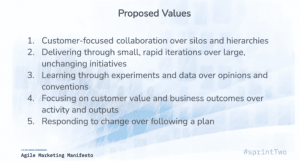After many years of sitting in on sales calls and even more providing feedback to salespeople in sales simulations, we’ve noticed there definitely is variability in the amount and quality of pre-call planning.
Pre-call planning improves when someone else is on the call, like a sales manager, colleague, or even a consultant along as an observer. But the boost doesn’t last. Too often it’s replaced by the amount of time salespeople have in their car prior to the call or the time it takes to drink a latte at Starbucks.
This story has been told thousands of time. No need to rehash it here. What’s more interesting is talking about a frequently missing ingredient in pre-call planning – even when pre-call planning does happen. Salespeople usually identify what they want to say and what questions they want to ask, but they stop there. They omit considering want to propose as the next step to move the sales cycle forward. As many sales managers have told us – every salesperson should close for a commitment that moves the sales cycle forward on every call.
When giving feedback in sales simulations we often share with sales reps and managers that the sales person should plan multiple advances. Why? If the call doesn’t go as well as planned, they can close the call with something less aggressive that moves the sale along. On the other end of the spectrum, what if the call goes better than anticipated? If they haven’t thought about a more aggressive advance – how will they close the call? Too often the result is a missed opportunity. The best planned and executed sales call that doesn’t end with moving the sales cycle don’t lead to generating revenue!
Business & Finance Articles on Business 2 Community(45)
Report Post







